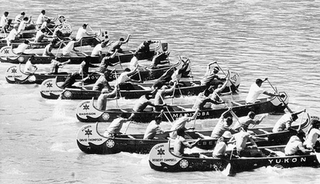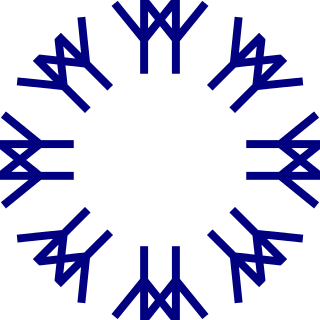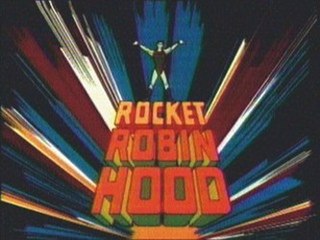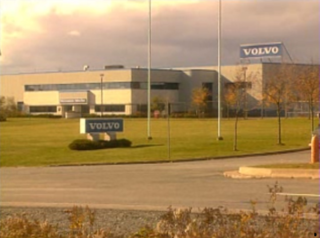 W
WThe history of Canada (1960–1981) refers to the period immediately following the prosperous 1950s until the new constitution of 1982, the Canada Act.
 W
WThe 1976 Summer Olympics, officially known as the Games of the XXI Olympiad and commonly known as Montréal 1976, were an international multi-sport event held from July 17 to August 1, 1976 in Montreal, Quebec, Canada. Montreal was awarded the rights to the 1976 Games at the 69th IOC Session in Amsterdam on May 12, 1970, over the bids of Moscow and Los Angeles. It was the first and, so far, only Summer Olympic Games to be held in Canada. Toronto hosted the 1976 Summer Paralympics the same year as the Montreal Olympics, which still remains the only Summer Paralympics to be held in Canada. Calgary and Vancouver later hosted the Winter Olympic Games in 1988 and 2010, respectively.
 W
WThe 1981 National League Championship Series was a best-of-five series to end the 1981 National League season. It was the 13th NLCS in all. The series featured the first-half West Division champion Los Angeles Dodgers and the second-half East Division champion Montreal Expos. The Dodgers won the series three games to two over the Expos, thanks to a ninth-inning home run in Game 5 by Rick Monday in what has ever since been referred to as "Blue Monday" by Expos fans.
 W
WCanada in the Cold War was one of the western powers playing a central role in the major alliances. It was an ally of the United States, but there were several foreign policy differences between the two countries over the course of the Cold War.
 W
WThe Centennial Voyageur Canoe Pageant was a canoe race started on May 24, 1967 in the Rocky Mountains by ten teams representing eight provinces and the two existing territories. Prince Edward Island and Newfoundland, the two remaining provinces were not entered. 3,283 miles (5,283 km) were paddled and portaged in 104 days by 100 men using six man shifts per team. They arrived in Montreal on September 4. Other privately sponsored canoes from across the country made similar trips. As of March 2012, it still holds the Guinness record for longest canoeing race in history.
 W
WThe 1967 International and Universal Exposition or Expo 67, as it was commonly known, was a general exhibition, Category One World's Fair held in Montreal, Quebec, Canada, from April 27 to October 29, 1967. It is considered to be the most successful World's Fair of the 20th century with the most attendees to that date and 62 nations participating. It also set the single-day attendance record for a world's fair, with 569,500 visitors on its third day.
 W
WThe Great Canadian Flag Debate was a national debate that took place in 1963 and 1964 when a new design for the national flag of Canada was chosen.
 W
WRocket Robin Hood is a Canadian animated television series, placing the characters and conflicts of the classic Robin Hood legend in a futuristic, outer space setting. It was produced by Krantz Films, Inc. and aired on CBC Television from 1966 to 1969.
 W
WThe Volvo Halifax Assembly Plant located in Halifax, Nova Scotia was opened on 11 June 1963 by Prince Bertil. It was the first assembly plant Volvo opened outside of Sweden and the second non-domestic auto plant in North America after Rolls Royce. Volvo decided to open to the plant to bypass hefty North American import tariffs on foreign goods and to capitalize on the newly signed Canadian/American Auto Pact. The plant was operated by Volvo Canada Limited in Toronto, Ontario and bridged the gap between Volvo of North America, Volvo headquarters and the flagship Torslanda plant in Gothenburg.